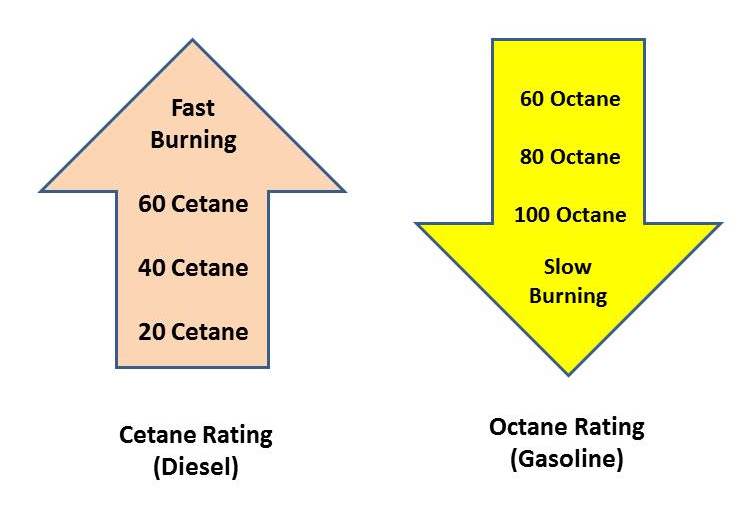Locust Cutter
Air Force Redneck

Y'all are right on the Octane definition, but inversed on the Cetane definition. Cetane measures Diesel relative combustability (how easy it is to light). The higher the Cetane#, the easier starting the fuel and engine will be, and generally smoother idling it will be (usually better mileage too'). That's why many people, myself included, use Power Service, or some other fuel treatment in our diesels, to increase the Cetane number, and make them easier starting in the Winter. There is also a usually a lubricity modifier package in there as well, to help the injectors and fuels systems in engines made prior to Ultra-Low Sulfur fuel mandates live longer, as the sulfur acted like a lubricant, similar to tetra ethyl lead in gasoline once upon a time. The Ultra-Low Sulfur is hard on older systems, like my ALH engined VW...
If anything, adding two-stroke oil to gasoline would effectively increase the relative octane, as the oil has a higher specific flash-point than straight gasoline has. It is another form of fuel though, and adds more energy density to the fuel, than simple gasoline alone. Cetane domestically fluctuates between 37-45 but the target is 40. In much of Europe, the fuel is closer to 50 on average, allowing many of the long refined diesel designs to hit performance and mileage targets not achieved here (with the same engines) due to crappier fuel and the tuning associated with it.






